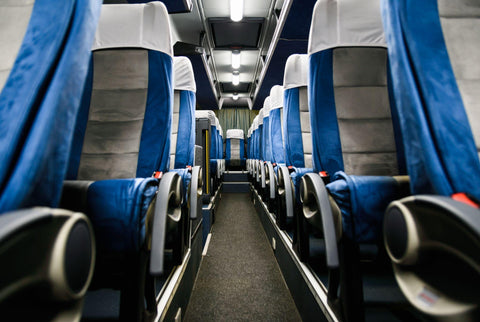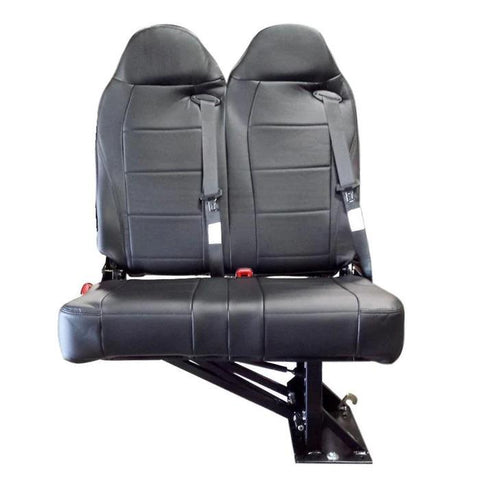
Hundreds of thousands of city buses and private transit buses hit the road each morning to take people to work and tourists to their destinations. Keeping bus seats in good shape helps municipalities and other bus owners maximize their investment in their buses and ensure passenger health and safety.
What Can Cause Worn Out Transit Bus Seats?
The main reason why transit bus seats wear out is because of constant use. The more contact and friction the seat has to withstand, with time that material will show wear and tear, no matter its quality or durability.
Another reason transit bus seats get worn out is intentional damage. It’s not easy to watch every passenger, so there can be vandalism and property damage inside the bus.
For example, someone can carve in the bus seat, breaking the protective cover. With time, that rip can grow until the seat becomes unusable.
Why Is It Important to Keep Transit Bus Seats in Good Condition?
Transit buses aren’t cheap, and many municipalities face huge budgetary challenges, as tax revenue is still a struggle for many communities. As a result, many cities and governmental organizations are doing their best to make buses last as long as possible. The average municipal transit bus has been on the road for eight years or more.
Tourists and commuters can be tough on equipment, and bus seats are no exception. Along with regular wear and temperature-related damage, bus seats are often intentionally damaged by unruly children and teenagers.
Worn-out seats can be uncomfortable for students and other users, making them more likely to act out on the bus. They can also pose risks to their health and safety, as worn-out seats increase the risk of injury or do not provide adequate protection in the event of a crash.
Signs of Bus Seat Wear and Tear
You’ll probably be able to tell whether your transit bus seats need a replacement. Worn-out seats have indicators that tell you they will not last much longer.
Here are a few signs you may need to replace your bus seats:
- Vinyl is torn, and cloth underneath is exposed – Some bus owners may think that having the cloth underneath the vinyl exposed isn’t a big deal, but it is. The vinyl is often the flame retardant part of the bus seat. The cloth underneath may not be. If the cloth underneath is exposed, it can ignite in the event of a fire. The flame retardant vinyl would be slower to burn, giving people more time to flee the bus.
- Bus seats are loose – A loose bus seat may cause an injury if it detaches from the floor and causes a passenger to fall or strike another surface on the bus. Bus seats should be connected securely to the floor of the bus.
- Cushioning is worn out – Worn out seat cushions aren’t going to be comfortable and can contribute to injury if they’ve deteriorated to the point where bracing underneath the seat can be felt through it.
- Seat backs are worn out – Seat backs need to be well-padded, as it is likely that passengers will strike them if there’s an accident and the occupants of the bus are flung around.

Comfortable and functional bus seats are essential for your vehicles. These seats will increase safety and comfort for students and other users. The correct replacement seats will also be durable and made of high-quality materials, meaning they will last longer.
Find the Best Replacement Seats for Your Transit Buses and Trucks with Suburban Seating & Safety!
Are your transit bus seats looking worn out? It might be time to look for high-quality replacements. If you want the best and most durable transit bus seat replacements, look no further than Suburban Seating & Safety. We have the widest selection of stylish and comfortable seats for every need, from commercial bus fleets to heavy-duty transit vehicles.
At Suburban Seating & Safety, we are committed to providing only the highest quality of products with comfort and safety for everyone. That’s why we’ve designed and manufactured our transit seat replacements with superior back support and the best materials for the job. To learn more about our incredible suburban products for trucks and buses, contact us at 844-727-7328!

